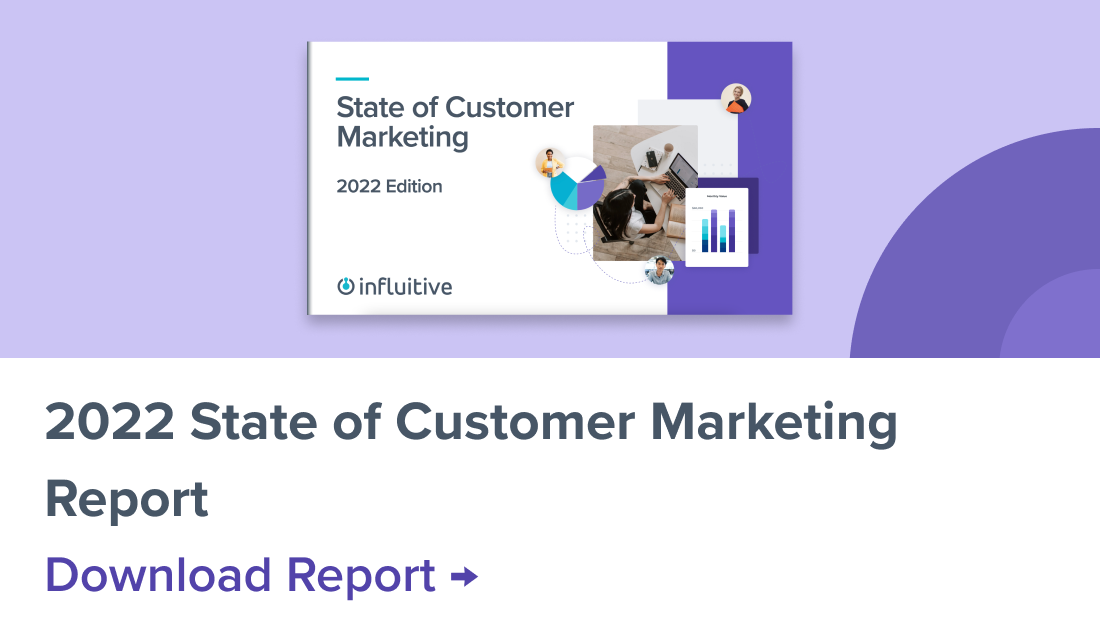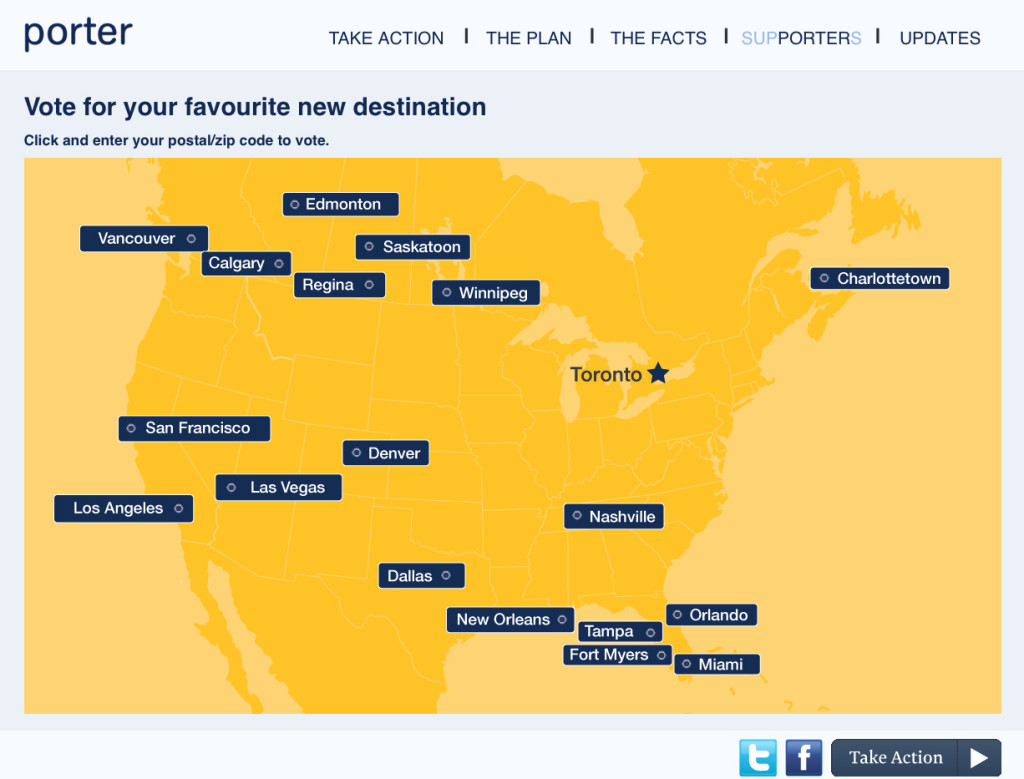With the final season of Mad Men premiering last night, I’ve been thinking about my favorite Don Draper quotes.
One in particular stands out as solid marketing advice for any company: “If you don’t like what’s being said, change the conversation.”
This quote is from “Love Among the Ruins” (season three, episode two), an episode that showcases the public outrage many New Yorkers felt when developers planned to tear down the old Penn Station to build Madison Square Garden.
This situation reminds me of what’s happening today in Toronto with the controversy over the proposed expansion of the Billy Bishop Toronto City Airport on the city’s downtown waterfront – home to regional airline Porter and right in Influitive’s backyard.
If you’re not familiar with the situation, the proposed changes would ultimately allow Porter to fly jets to western Canada, California and Florida. Unfortunately for Porter, many Toronto residents and city councilors are protesting the expansion, citing concerns over environmental impact and existing infrastructure.
The airline, meanwhile, is trying to change the conversation with the help of its customers. Porter has been running a huge marketing campaign via email and social media, as well as print and billboard ads, encouraging Torontonians to tell their city councillors that they want the airport expansion to go ahead.
Throughout the campaign, the airline has relied heavily on customer advocacy to shape the debate. For example, Porter recently asked customers to vote for their favorite new destination that the airline might fly to if the expansion goes ahead. In order to vote and see the results of the poll, you must enter your postal code, which generates instructions for contacting your local city councillor by phone or email, or telling friends on Twitter or Facebook.
Time will tell how the Porter situation turns out, but the company’s massive customer advocacy campaign shows that Don Draper’s marketing advice is still relevant in 2014 – and not just for consumer-facing companies like Porter.
How can you motivate your advocates to change the conversation?
As a B2B marketer, you may not be at the center of a huge controversy such as Porter is or Madison Square Garden was, but you probably have a few conversations that you would like to change.
These may include customers venting about your product on social networks, unfavorable reviews on a popular blog, or even negative press. You might also need help turning around a lack of engagement with your content marketing, social media updates and PR strategy.
Here are three ways an advocates can help you change the conversation:
1. Invite advocates to take a turn on the soapbox
Asking customers to read and share your own content with their networks is a good first step. However, truly changing the conversation means your company’s voice isn’t the only one being heard in the marketplace. Your customers, partners and other fans should also be encouraged to create and contribute to content that shapes ongoing discussions about your industry, category, company and product.
When they become the thought leaders, they’re more likely to take ownership of and be proactive in changing the conversation, both on your behalf and theirs. This is a strategy we recently employed in our Grow Your Customer Base: Cut Your Customer Reference Program eBook.
2. Extend the reach of your messaging
Many B2B marketers publish content, cross their fingers and hope that qualified leads will find it. But today’s buyers are overwhelmed with vendor content that asks them to “share this,” “download” or “click here.” Much of this content is self-serving and does little to help buyers.
If you want to avoid simply contributing to the noise, facilitate the creation of genuine content that buyers find most valuable, such as unbiased product reviews and testimonials on third-party websites, or thought leadership and case studies from respected professionals in their industry (as in real people, not just faceless logos). As participants share their contributions with their networks, they carry your message to an even broader – but still relevant – audience.
3. Nurture dissatisfied customers
Whether customers are expressing frustration with your solutions publicly or privately, you can address their concerns and help them get more value from your products by inviting them to join a user group or offering free online training, for example. You can also ask for their feedback and then, more importantly, let them know how you’ve implemented their feedback — demonstrating your commitment to improving the customer experience.
If you still don’t know how to motivate your advocates to change the conversation, take a cue from Don and his Mad Men-era contemporaries: have a whiskey, take a nap, or head to a matinee and know that inspiration will soon strike. (Disclaimer: These strategies may or may not be as socially acceptable today as they were at ad agencies in the 1960s.)
Do you think Don would recommend advocate marketing to his clients if he were still working today? Share your thoughts in the comments below.











































